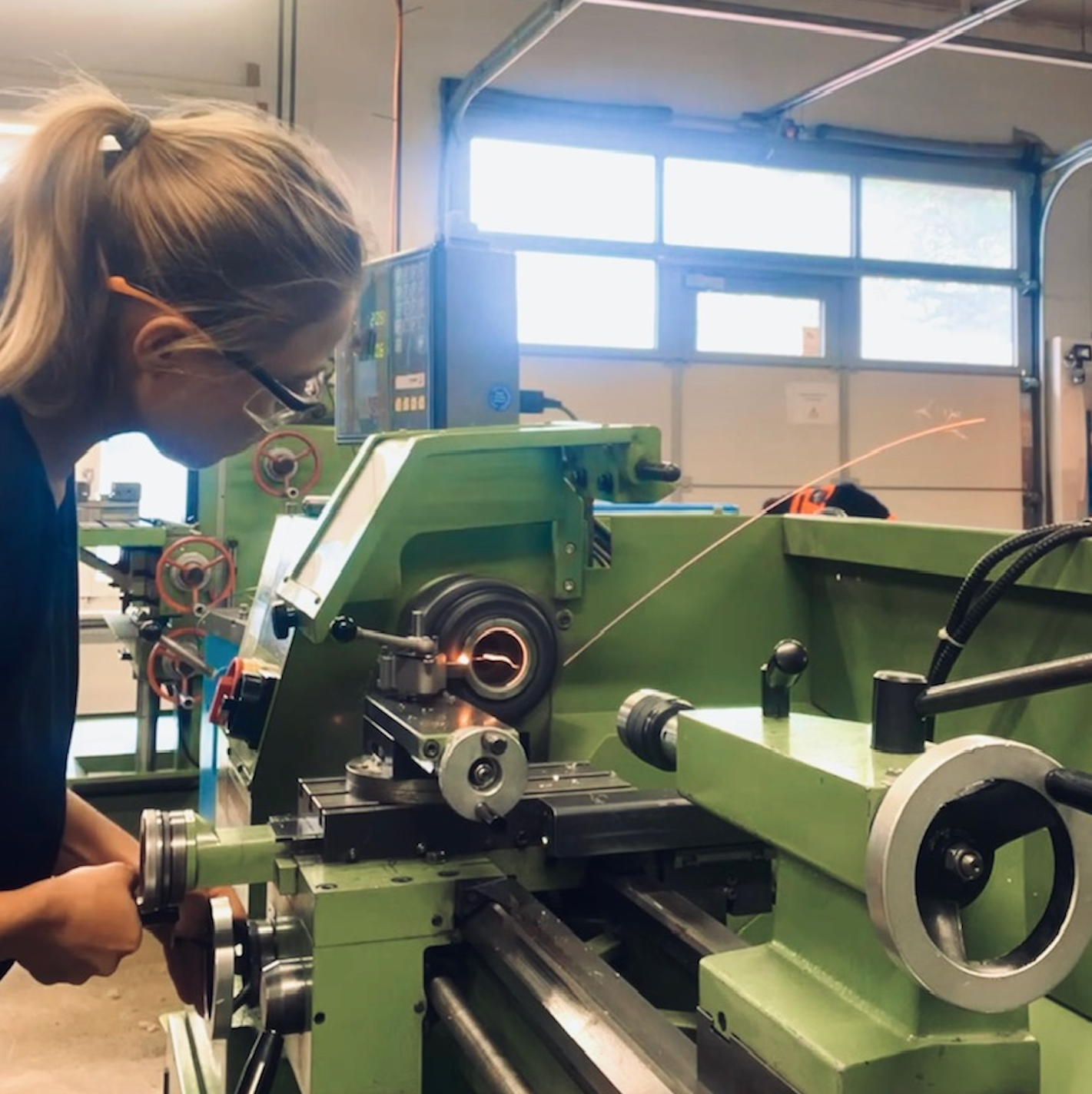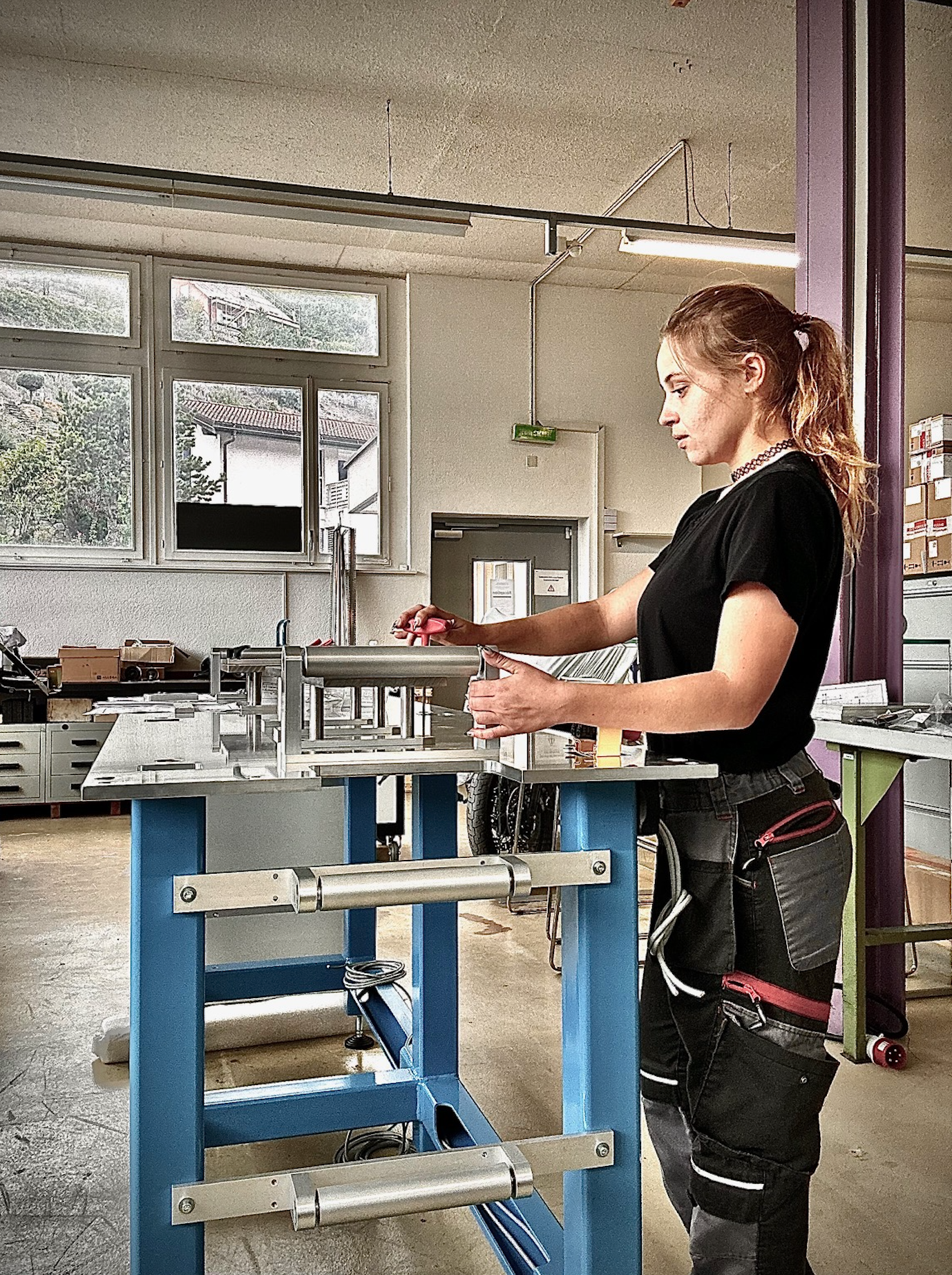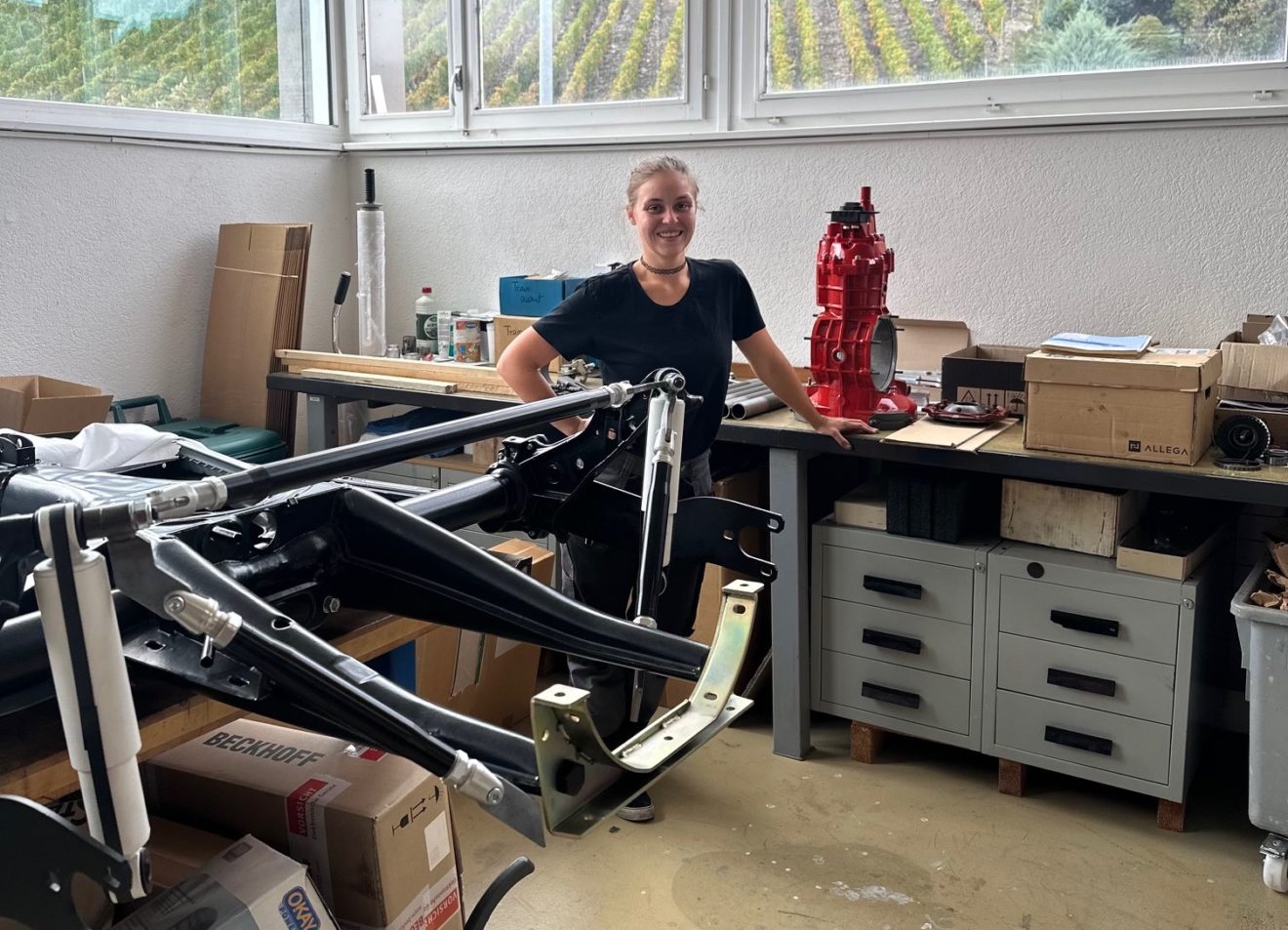A future in watchmaking, working with it or for it, is not just a man’s choice. At a time when the industry is facing a shortage of vocations, Amande Berclaz is a shining example to follow…
Joël A. Grandjean, JSH Magazine & Swiss-Watch-Passport.ch ‘s Editor in Chief
Follow us on Linkedin – Facebook – Insta JSH – Insta SWP – JSH Subscriptions

As a model? That’s where you’ll find Amande, on her hobby scene, of course, since her day-to-day work involves dealing with huge machines. Work units that she masters and tames, materials of all kinds that she shapes and machines. Machines that she masters and controls, and materials of all kinds that she shapes and manufactures.
Amande already has her own mind made up. Even at birth, her decisive crying got the better of the name “Marie” that her mom wanted to give her. It wasn’t until she heard “Amande” that she quieted down – her father didn’t even know. She loves her job and thrives in it, working in a Valais mechanical workshop, the BEMRC.

How do you become a polymechanics technician?
At first, I didn’t feel comfortable telling my parents that I’d chosen to leave secondary school to study mechanics. To my great surprise, it was even my dad who introduced me to an acquaintance in polymechanics. My parents supported me 100%. As far as my friends were concerned, nobody was shocked. Not even my teachers. On the other hand, some members of my family are still not very proud to have a working-class woman as a niece or granddaughter. So I prepared myself for the apprenticeship, notably by doing a third year of Secondary School.
In terms of training, where have you been?
I did a 4-year polymechanics apprenticeship, where I learned all about conventional and digital machining, assembly and fitting. And of course, technical drawing, design and automation.

The Convention patronale (CP, Employers’ Association) of the watchmaking industry estimates that nearly 4,000 professionals will need to be trained and recruited between now and 2026. Neuchâtel, Berne and Geneva are the cantons with the highest number of watch industry employees. Nine out of every ten people employed by the industry are from the “Watchmaking Arc“, comprising these three cantons plus Jura, Solothurn and Vaud. With an additional 3,332 employees in 2022, the number of people working in the Swiss watch industry will reach levels close to those prior to the quartz crisis of 1970-1988, when the workforce dropped from 90,000 to 30,000. _CP credit
The Prevhor Foundation offers subsidized training specifically for women. 43% of watchmaking employees are women! The Collective Labor Agreement (CLA) for the watchmaking and microtechnology industries contains valuable provisions for women’s rights in the workplace. Maternity leave, training, retirement… Over time and through struggle, women in the watchmaking industry have won rights. But there are still other battles to be fought, notably for equal pay..
Is it then necessary to specialise?
I did my apprenticeship at Constellium for 4 years. After that, you can go on to engineering school, or take in-house training courses. I’m currently following several training courses at BEMRC SA. My boss Romuald Cappelle offers me lots of opportunities.
Small components such as those on a wristwatch require a great deal of attention to detail”
Were there many other girls in the group?
Since I’ve been in the business, I’ve only known four girls in this particular field…
Is there any natural aptitude for being a polymechanic?
You need to be logical when learning, and good at mathematics… And every company will require different skills. If you’re working with small parts like those on a watch, you’ll need to be very meticulous, whereas if you’re working with parts weighing a ton, you’ll need other qualities like strength or the ability to adapt to whatever comes your way. Every position and every company requires different skills and specific training.
Is it harder to find a job as a woman?
There was a time when it was harder to find a job, because not all companies had women’s changing rooms and toilets. Today, it’s getting easier. I remember one company that wanted to hire me after my apprenticeship, but didn’t yet have the legal requirements to admit me. It only took me a few months to find a job after my apprenticeship.
What tips would you give, whether for boys or girls, about this career?
There’s quite a bright future in this profession, and the training courses are really interesting. This job is the best if you don’t like routine, it’s very diversified.
Amande Berclaz: “Having an idea in mind, maybe an invention, and being able to realize it from A to Z… I find it so amazing!”













